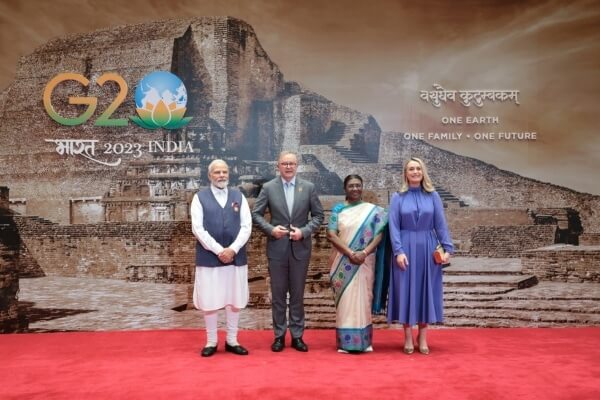The recently concluded G20, while having gained a new member in the African Union, could also be in the danger of losing two prominent members in Russia and China.
Without active participation of these two members who have often presented a contra opinion to those of the United States and its allies on various issues, will the G20 forum be anything other than a West-driven talk fest in the future?
The G20 – or Group of Twenty – is a club of countries which meets to discuss global economic and political issues on a yearly basis. Between them, these G20 countries account for 85% of the world’s economic output and more than 75% of world trade. They contain two-thirds of the global population. Though established in 1999, it was only in 2009 at the height of the global financial crises, that it came into its own.
Over the years, as countries of the world looked at forums other than the United Nations, the G20 came into favour as an annual meet–and–greet by world leaders to discuss and act upon (or promise to act upon) major issues related to the global economy, such as international financial stability, climate change mitigation and sustainable development.
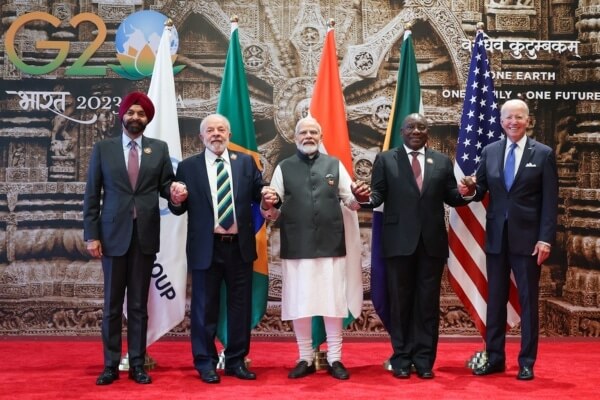
A shift in the geopolitical landscape now and a polarising world order may well make the G20 a toothless tiger.
While it exercises global power, over the last couple of years its influence seems to be declining and the recently concluded G20 in India may well be the start of this forum’s waning power.
A la-carte menu of alliance options
Different layers of multilateralism have started to emerge globally. Alliances are being formed which may suit nations for economic as well as geopolitical reasons. The Quad, Australia, India, Japan and United States, is one such example. A phrase coined by an investment banker a few years ago, BRIC (for Brazil, Russia, India and China – with South Africa added to make it BRICS) has become another bloc, which only recently admitted six new members, in an attempt largely by Russia and China to reshape the global world order and provide a counterweight to the US and its allies. From early next year, Iran, Saudi Arabia, Egypt, Argentina, the UAE and Ethiopia will join the current five members.
In a recent article in the SMH, political and international editor Peter Hartcher quoted leading Indian strategic analyst C. Raja Mohan of the Institute of South Asian Studies at the National University of Singapore, who said that he sees Chinese President Xi moving into a new modus operandi, “using BRICS to build an anti-US platform and more directly confronting the West, rather than coming to multilateral forums where you have to deal with contending views. It’s a big step.”
Both Russian President Putin and Chinese President Xi opted not to travel to India for the G20 2023 summit.
President Vladimir Putin was not present at G20 last year in Bali either. He has not been abroad since the International Criminal Court (ICC) in March this year issued a warrant for his arrest over alleged war crimes in Ukraine. India is not a signatory to the Rome Statute and would not have been required to arrest Putin. The relationship between India and Russia is also very warm, and President Putin could have travelled to the summit hosted by its close ally. President Xi also snubbed the G20 by not attending, despite having attended the BRICS summit in South Africa a fortnight earlier.
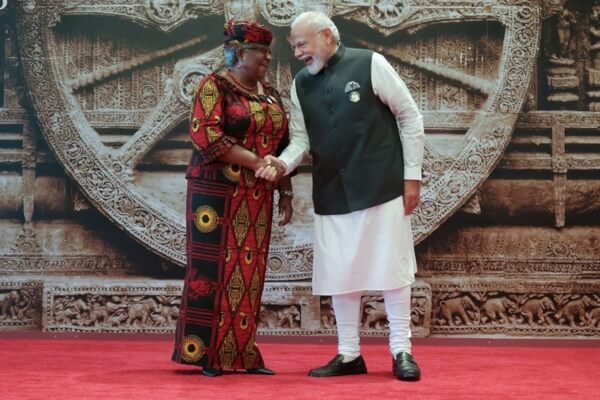
A triumph for PM Modi
Yet for Indian Prime Minister Narendra Modi, the G20 was a triumph domestically and internationally.
Internally, the timing was perfect. Indian general elections are scheduled to be held in 2024 and while Modi’s BJP is a shoo–in to win, the party has had a few scares in state elections recently. After having swapped the hosting role with Indonesia from 2022 to 2023, PM Modi used the opportunity to position himself in the eyes of the voting Indian public as a true world leader.
The phrase coined was Vishwa Guru (the leader of the world), and Modi’s face was plastered on billboards around the country.
The message was simple: by hosting the world’s top leaders, India has arrived as a world power, with PM Modi as the person who took the country there.
The billboards are old–fashioned advertising.
The true power of digital and social media messaging was unleashed to take advantage of this opportunity. India has more than 692 million internet users with 467 million social media users, from 1.1 billion cellular mobile users.
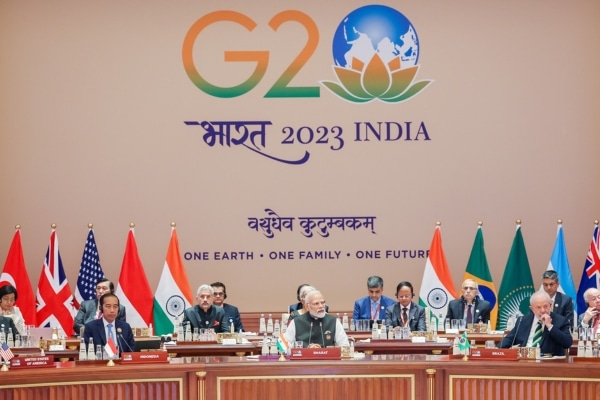
PM Modi’s BJP party set up 225 call centres with 20,000 tele callers promoting the achievements of the PM and his world leader status; the party is reputed to have used 2.5 million social media professionals to reach 100 million voters.
While the use of the G20 for domestic political gain may seem galling to some, others see it as being in the right place at the right time and having no qualms in taking advantage of the situation.
One thing is for sure – the G20 became more democratized in India than ever before: with the constant chatter about it for months before, and the giant billboards across the length and breadth of the country, the common man became aware of the concept.
These gains notwithstanding, the staging of the G20 has come at enormous financial cost.
It is reported that over AUD$800 million was spent on this 72-hour fanfare, as opposed to $170 million at the Buenos Aires summit of 2018, and $450 million at the Osaka summit.
Atul Bhargava, President of the New Delhi Traders Association, told Business Today, “The Delhi G20 also cost almost $40,000,000 in losses to the local shops and restaurants forced to shut down (for the tenure of the event).”

Gains for India
What India got out of it was a bit more of that international exposure it has begun to enjoy in recent years, making itself better known and accepted. There’s been space success following economic success; its global corporate clout is increasing, with Indians heading many large multinationals, and the growth in soft power has been phenomenal.
It also showed the clout which India and PM Modi have begun to hold internationally. This was perhaps reflected in the final Delhi Declaration that seemed to water down that significant current concern, Russia.
The western nations in the group would no doubt have wanted to send a strong message to Russia in the communique, calling it out for its ongoing aggression against Ukraine. And yet, so high are their stakes in India, that they signed off on a diluted declaration. The language on the invasion of Ukraine was noticeably softened compared with the statement from last year’s summit, shielding Russia from criticism over the war.
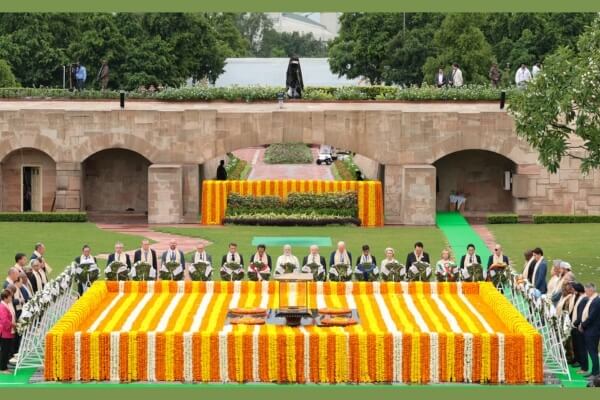
Unlike the Bali Declaration year, there was no condemnation this time round of Moscow or reference to Russia’s aggressions.
Russian Foreign minister Sergei Lavrov praised the role of India in the negotiations, claiming it had pushed back against attempts to “politicise” the G20. The Delhi Declaration issued in its watered-down version was a triumph for PM Modi.
India and PM Modi also had notable success by being the voice of the Global South: having the African Union admitted into the infrastructure of the G20, was quite a coup. It showed India’s desire to stand up for and be a voice for much of the ‘developing’ world, nation states coming into their own after colonisation.
Another coup, though from the sidelines of the G20 overall, was the significant announcement of the launch of a new economic corridor that will link India with the Middle East and Europe through a new network of rail and shipping infrastructure to rival the One Road One Road Chinese policy. It is in early stages yet, but the discussions amongst the countries have been positive.
Read More: Biden will call for ‘reshaping’ World Bank, IMF at G20



